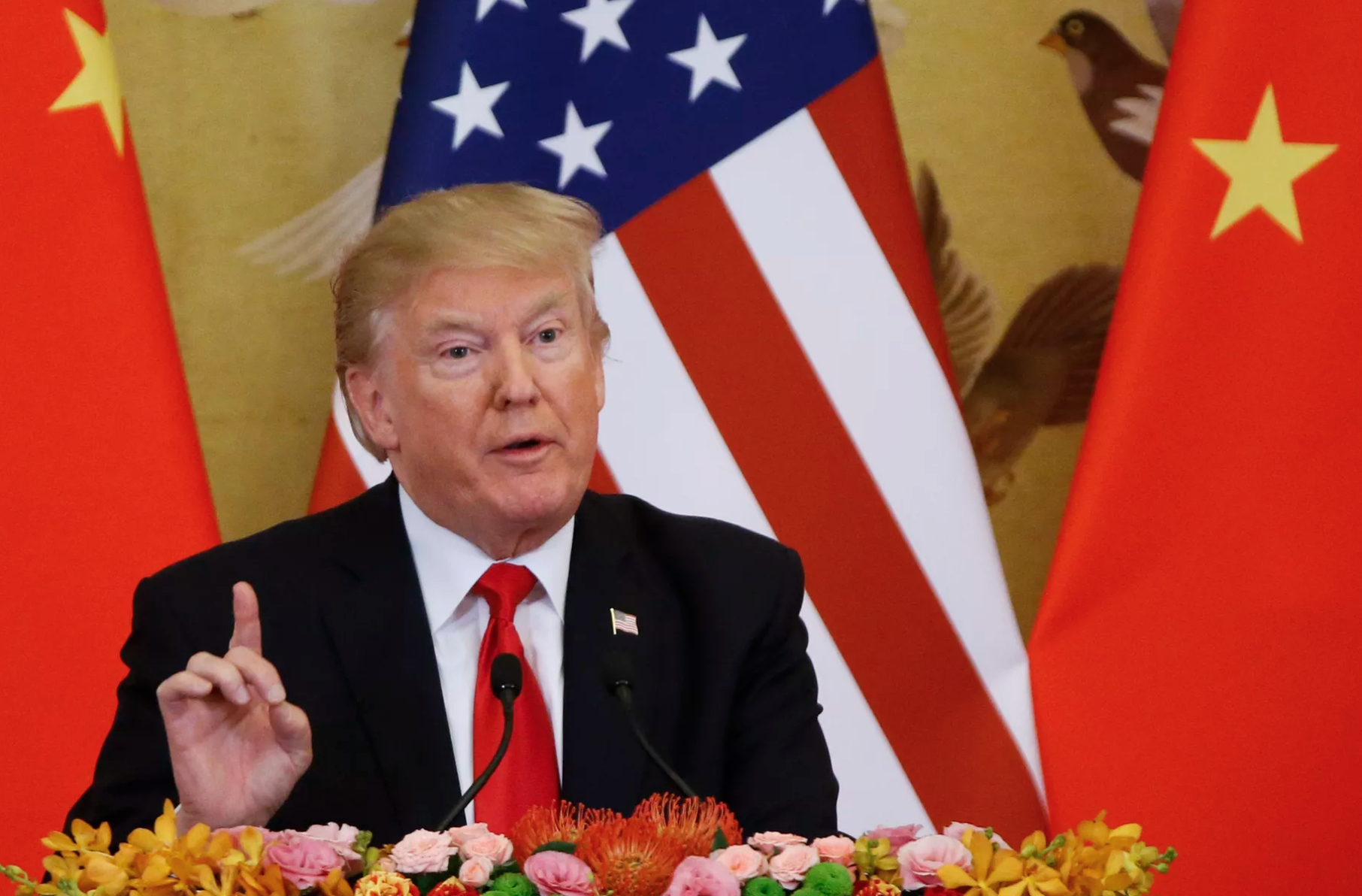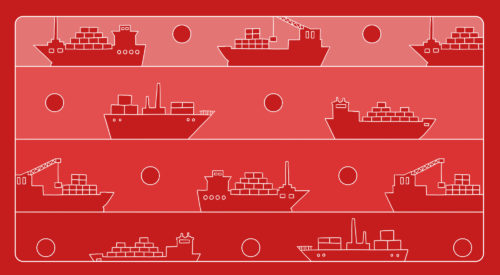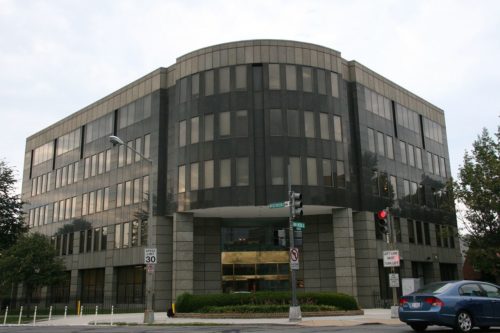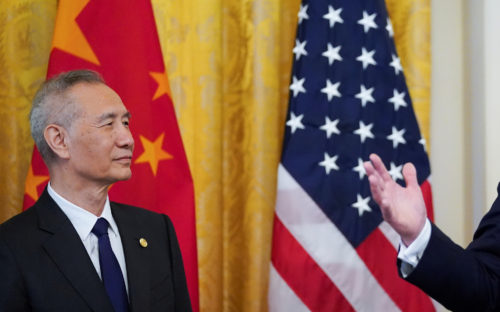Trade war, day 103: ‘Christmas 2019 could be tricky’

Twice a year, thousands of Chinese export companies and potential customers gather in Guangzhou for the China Import and Export Fair, also known as the Canton Fair. When Reuters polled Chinese export companies at the last Canton Fair this spring, “only a quarter” of them expected a full-blown trade war with the U.S.
About $250 billion worth of traded goods under tariffs later, the three-week Canton Fair going on right now is decidedly more pessimistic. Reuters’ poll of export companies this time showed that “more than 60 percent expected the trade war to last at least another year.”
Bloomberg also has reporters on the ground in Guangzhou and is updating this post with insights from specific companies: Canton Fair: How China’s exporters are handling trade war (porous paywall). Of note: “Christmas 2019 could be tricky,” because “holiday decorations are the type of low-margin, labor-intensive consumer goods for which the companies that manufacture them would suffer if the U.S. subjected them all to tariffs.” And though one Christmas-oriented company said it had not been hit by tariffs yet, they said it would be impossible to quickly relocate more production to Vietnam to avoid further tariffs that have been threatened.
Also at the top of that Bloomberg article is a video interview with economist Andy Rothman, whose comments are worth noting:
- A “significant mistake being made in Washington” is that American officials are both underestimating the Chinese economy and overestimating the importance of exports to the Chinese economy. Some notes on that:
- President Trump and some of his advisors have repeatedly conflated the Chinese stock market with the broader Chinese economy, even though they are very separate things. The Chinese stock market has been battered by the trade war; the Chinese economy has not been much.
- Rothman has written before about how “The Chinese economy is no longer export-driven. Net exports (the value of a country’s exports minus the value of its imports) account for only 2% of China’s GDP, down from a peak of 9% in 2007.”)
- Rothman predicts we’ll see a resolution to the dispute “within the next few quarters,” partly because the impact on the U.S. economy will become substantial.
- “The President’s in deal-making mode,” with trade tensions having recently been reduced with Canada, Mexico, the EU, and South Korea.
- It’s not clear that Trump wants decoupling of the U.S. and Chinese economies, even though that is the apparent goal of many of Trump’s advisors. Trump may be satisfied if he ends up getting a deal for just “more market access” and “better protection for IPR,” Rothman says.
More U.S.-China and trade war news:
- Geopolitics and security angle
The U.S. ‘Obviously’ Doesn’t Want to Contain China, Mattis Says / Bloomberg (porous paywall)
In what Bloomberg calls an “attempt to soften the White House’s messaging,” Secretary of Defense James Mattis specifically denied that the U.S. was out to “contain” China. “So we’re two large powers, or two Pacific powers, two economic powers. There’s going to be times we step on each other’s toes, so we’re going to have to find a way to productively manage our relationship,” he said.
But Mattis may not be the person managing that relationship going forward: To CBS over the weekend, Trump indicated that Mattis “may leave” the White House, and that he is “sort of a Democrat,” in Trump’s view.
And other national security officials in the Trump administration do not seem to share Mattis’ view: as we noted on Access yesterday (paywall), John Bolton, the national security advisor, seems to be all-in on a strategy of containing Chinese power.
Beijing warned to prepare for more US ‘provocations’ in South China Sea / SCMP
US alarmed by China’s ‘predatory’ practices: James Mattis / Economic Times of India
- Japan angle
Growing impact: a third of Japan Inc hurt by U.S.-China trade war / Reuters
“The number of Japanese companies affected by the U.S.-Sino trade war has jumped to a third, soaring from just 3 percent in May with firms fretting about prospects for their exports from China as well as slower Chinese demand, a Reuters poll found.”
Xi and Abe to launch new dialogue on intellectual property / Nikkei Asian Review
- Oil and soybeans
Another Victim of the Trade Spat: U.S. Oil to China / WSJ (paywall)
“China was the biggest buyer of U.S. crude oil in the first half of this year. But in August, U.S. crude exports to China, the world’s largest oil importer, fell to zero.”
Two Ships With U.S. Soybeans Head to China With Trade War Lingering / Bloomberg (porous paywall)
“Two more vessels loaded with U.S. soybeans have departed for China, signaling that buyers may be getting more desperate for supplies amid the prolonged trade war between the nations.”
- State media commentary
Commentary: Washington’s accusing China of “forced technology transfer” not grounded in facts / Xinhua
Chinese version: 新华社评论员:“强制技术转让说”站不住脚
- Taiwan
US research vessel docks at Taiwan’s Port of Kaohsiung on scientific mission / Taiwan News
Trump’s China Battles Give Taiwan Supporters Renewed Influence / Bloomberg (porous paywall)
“Escalating tensions between the U.S. and China over trade, the South China Sea and recent arms sales are pushing Taiwan back into the American foreign policy spotlight, attracting Beijing’s ire.”
Taiwan sees opportunity in US-China trade war but don’t expect a windfall, economists warn / SCMP
“Taipei was upbeat earlier this month, announcing that at least 40 businesses based on the mainland were planning to relocate to the island, and 30 more could be looking to Southeast Asia.”
- American politics
Trump urged to declare China a currency manipulator / Economic Times of India
Tammy Baldwin, a Democratic senator from Wisconsin, is not happy that Trump hasn’t labeled China a currency manipulator as he had promised. She wrote a letter to the Trump administration urging it to do so in its upcoming currency report — but Politico has reported that there are no plans to name and shame China in that report. (also, economists generally don’t agree with Baldwin — China is not significantly artificially depreciating its currency these days, even to offset the trade war impact)
- Hainan free trade regulations
Go Hainan? China tries to woo the world to its Hawaii / SCMP
“Beijing is opening the tropical island of Hainan – China’s answer to Hawaii and its southernmost destination – to foreign investors, including the granting of overseas control of some internet services, in its boldest gesture yet that it is prepared to open its arms to the outside world, despite the ongoing trade war with the US.”
China unveils plan for Hainan free trade zone, says effort unprecedented / Reuters
- American politics
169 House members urge the Trump administration to allow exclusions from the latest China tariffs / CNBC
“In a letter to U.S. Trade Representative Robert Lighthizer dated Monday, 169 representatives pushed the White House to let firms request exclusions from the duties.”
Previously in The China Project’s trade war coverage:






